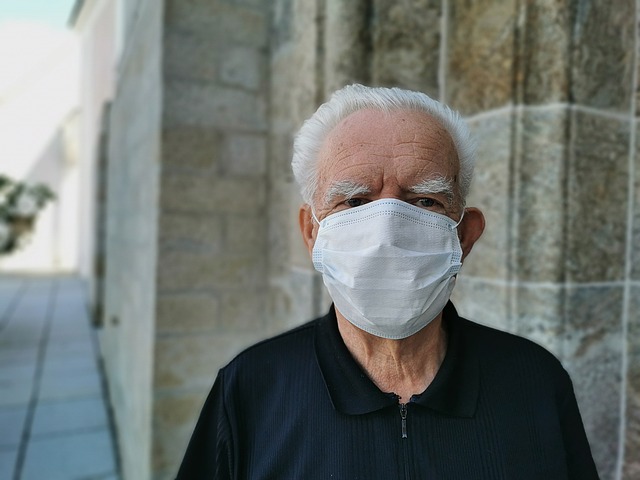As individuals age, the importance of tailored end-of-life care for seniors cannot be overstated. This phase requires comprehensive care planning services that address the multifaceted needs of the elderly, encompassing their physical health, emotional well-being, and spiritual preferences. These services are designed to ensure that elders can navigate their later years with dignity and autonomy, maintaining control over their healthcare decisions. Personalized care plans are crafted in collaboration with seniors, their families, and healthcare professionals, emphasizing the integration of medical interventions with individual wishes. The planning process also involves preparing advance care planning documents to clarify the senior's end-of-life preferences, ensuring that their choices are honored when they can no longer communicate them. This holistic approach ensures that seniors receive compassionate and respectful care, allowing them to age comfortably with their dignity intact. It is a critical process for elders to engage in early, providing reassurance and minimizing uncertainty for both themselves and their loved ones. These tailored end-of-life strategies are essential for empowering seniors and facilitating a peaceful transition, embodying the essence of compassionate care for the elderly.
navigating the complexities of end-of-life care for seniors is a journey that requires both sensitivity and pragmatism. This article delves into the essential role of compassionate end-of-life care planning services for the elderly, emphasizing personalized care plans and addressing the emotional and practical considerations inherent in such decisions. We explore how these services can enhance the quality of life for seniors during this vulnerable stage, ensuring dignity and comfort are at the forefront of care. Understanding the nuances of end-of-life care is pivotal for families and healthcare providers alike, guiding them through this delicate process with empathy and expertise.
- Understanding Compassionate End-of-Life Care for Seniors
- The Role of Care Planning Services in Elderly Care
- Personalizing End-of-Life Care Plans for the Elderly
- Navigating Emotional and Practical Considerations in End-of-Life Care Decisions
Understanding Compassionate End-of-Life Care for Seniors

As individuals age, the need for compassionate end-of-life care becomes increasingly significant. Seniors often face complex health issues that require a multifaceted approach to ensure their comfort and dignity are maintained. These care planning services are tailored to address the unique challenges encountered at this life stage, providing personalized support that respects each senior’s preferences and values. The goal is to create a holistic care plan that not only manages physical symptoms but also addresses emotional, social, and spiritual needs, ensuring a peaceful transition for the elderly and their loved ones.
Compassionate end-of-life care extends beyond medical interventions; it encompasses a supportive environment where seniors can express their wishes and fears without judgment. This approach fosters trust between the caregivers and the elderly, enabling open communication about end-of-life preferences, pain management options, and the support systems available to both the individual and their family members. Such care is delivered by trained professionals who are empathetic and understanding of the emotional and physical changes that accompany the end of life, ensuring that seniors receive the utmost respect and comfort during this delicate period.
The Role of Care Planning Services in Elderly Care

As individuals age, the need for tailored care planning services becomes paramount to ensure their well-being and dignity are upheld. These services play a crucial role in elderly care by assessing the seniors’ health status, preferences, and lifestyle to create a comprehensive plan that addresses both medical and emotional needs. This personalized approach allows for a seamless transition between different levels of care, from independent living to assisted care facilities, ensuring seniors receive the appropriate level of support at every stage. Moreover, these services often involve discussions about end-of-life preferences, enabling elders to maintain autonomy over their decisions and have peace of mind that their wishes will be respected. By facilitating open communication between healthcare providers, seniors, and their families, care planning services help in creating a compassionate environment where the elderly can feel supported and understood throughout their golden years.
Care planning services are instrumental in coordinating the various aspects of elderly care, including medical care, social activities, and emotional support. They act as a liaison between the senior and the healthcare system, advocating for the best possible care and ensuring that all necessary resources are accessible. These services also help seniors to navigate complex health systems and understand their options, which is particularly important when considering end-of-life care planning. By focusing on the unique needs of the elderly, these care planning services empower seniors to age with dignity, autonomy, and comfort, making them an indispensable component of comprehensive elderly care.
Personalizing End-of-Life Care Plans for the Elderly

As individuals age, the need for personalized end-of-life care becomes paramount. Crafting a compassionate care plan for the elderly ensures that their final chapter is not only dignified but also tailored to their unique preferences and needs. These plans often involve input from the senior, their families, healthcare providers, and sometimes legal professionals, all working in concert to address physical, emotional, and spiritual aspects of care. The goal is to harmonize medical treatments with personal wishes, creating a seamless continuum of support that respects the autonomy and dignity of the elderly individual. By engaging in open dialogues about end-of-life preferences, seniors can maintain control over their care, making the often challenging transition as comfortable and as aligned with their life values as possible.
Incorporating a holistic approach into end-of-life care planning for the elderly allows for a more comprehensive understanding of the individual’s lifestyle, values, and wishes. This comprehensive approach facilitates the creation of personalized care plans that encompass not only medical directives but also social, emotional, and spiritual considerations. Such plans often involve advance care planning documents like living wills and durable power of attorney for healthcare, ensuring that when the time comes, the senior’s preferences are known and honored. By focusing on the individual rather than a one-size-fits-all model, these personalized care plans empower the elderly to live their final days with comfort, dignity, and a sense of agency.
Navigating Emotional and Practical Considerations in End-of-Life Care Decisions

As individuals age, making decisions about end-of-life care becomes a delicate process that intertwines both emotional and practical considerations. The elderly often face complex medical situations and personal preferences that require careful planning and open dialogue with loved ones and healthcare providers. It is crucial for seniors to articulate their wishes regarding end-of-life care, ensuring their autonomy and comfort are respected. This process involves discussing palliative care options, advance directives, and the type of medical interventions they wish to receive or decline. Navigating these decisions can be daunting, but it is a fundamental aspect of compassionate care planning, allowing for a peaceful transition when the time comes.
In addition to the emotional aspects of end-of-life care decision-making, there are numerous practical considerations to address. These include understanding medical terminology, evaluating financial implications, and identifying the most suitable care settings or home health services. For the elderly, it is imperative to explore various support systems, including hospice care, that align with their healthcare needs and personal values. Furthermore, engaging in conversations about end-of-life preferences with family members can alleviate future uncertainty and provide a sense of relief for both the senior and their loved ones. By preparing these decisions ahead of time, seniors can maintain control over their care, ensuring dignity and peace during this delicate phase of life.
Compassionate end-of-life care is a multifaceted support system tailored for seniors, ensuring their final days are comfortable and dignified. The pivotal role of care planning services in elderly care underscores the importance of these resources. Personalizing end-of-life care plans allows for individual needs and wishes to be honored, facilitating peace of mind for both the elderly and their families. Navigating the emotional and practical aspects of such decisions is complex; however, with thoughtful planning and the right guidance, seniors can experience a respectful and humane conclusion to their life journey. Embracing these services not only supports the elderly but also strengthens the broader community by promoting understanding and empathy towards the end-of-life process.
